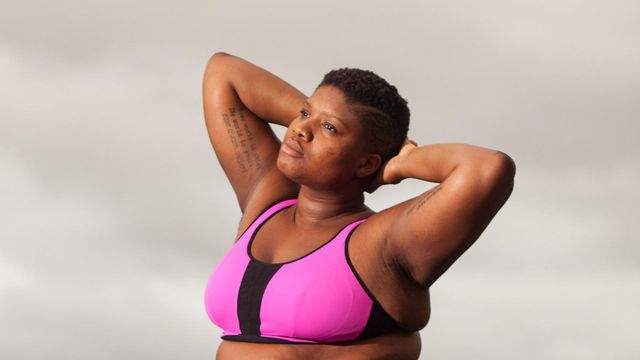Durham yogi, international body positivity leader challenges people to 'look within themselves'
WRAL sat down with Stanley to discuss her career as a yoga entrepreneur, the international attention and the message she wants to share with women and the world.
Posted — UpdatedAs Durham resident Jessamyn Stanley “lives out her yoga practice every day,” she inspires people around the world to break stereotypes and be the best version of themselves.
A social media sensation and entrepreneur, Stanley now partners with national brands and travels around the world to speak and teach yoga, all while writing her second book.
Originally from Greensboro, 29-year-old Stanley, whose struggle with depression brought her to yoga, is now in the spotlight.
After earning her undergraduate degree at the University of North Carolina at Greensboro, Stanley moved to Durham to attend the UNC School of the Arts for graduate school. She also attended culinary school while working for a variety of Durham nonprofits and restaurants, before discovering yoga and entrepreneurship as a career.
“I loved it. It was extremely challenging,” Stanley said. “ I was invariably one of the largest people in the room, and I was usually one of the only people of color. So it was a very alienating experience.”
Stanley’s life in the spotlight began with posting photos of herself practicing yoga on the then-new platform of Instagram to connect with other yoga practitioners.
“I noticed the responses I was getting weren’t feedback about my practice, it was people saying, ‘I didn't know fat people could do yoga.’ And I thought, 'Fat people can do all kinds of things.’ We clearly had a major visibility issue, so I just kept posting.”
“What people don’t realize is I am actually more representative of the majority of yoga practitioners than the minority,” Stanley said.
Six years later, Stanley said she lives out her yoga practice around the world, online, through brand partnerships, on social media and in her writing.
“We’re living in a world where different body types are seen as perfect, and everything else not only isn’t okay but that it shouldn't exist.” she said.
While she does promote body positivity, Stanley says the message she shares through yoga goes far beyond a single term.
“I face issues and push boundaries that don’t only exist on my yoga mat. And that’s really what the practice has become for me, looking within myself to find the answers to life’s questions,” she said.
“It’s all under the umbrella of trying to reach all the students who feel they need to learn from someone who understands what it is like to be an outcast.”
I came to understand that the reason people practice and teach yoga is to shine a beacon of light to other people. There are so many beacons of light, but not everyone is going to connect to every person. If people can learn from your light, then that is a reason to teach.
Because I’m fat-bodied, people think those are the only people I reach, but it’s all kinds of people. I have a mixed audience, but I would say it’s overwhelmingly people who identify on the spectrum of femininity.
We live in such a body negative world. Most people have some kind of body dysmorphia that they can’t get beyond.
It’s a product of marketing. And it’s a product of capitalism because all of us inherently believe that we’re not good enough. There are so many people that are hungry for another perspective.
It’s like this around the planet. People hate in Dallas just as much as Seattle. In Australia, it is so much worse. In France, it is quite possibly the worst. I was just in Indonesia, and Asia has insane body dysmorphia issues.
There’s no (geographic) limitation. It’s a worldwide epidemic.
And I feel a deep sense of community here.
I’m sure there are a lot of companies that feel that if they are attached to me, it then means they are body positive. But that’s not what it means. It means that I inhabit a body positive approach to my own life. But I have no problem being a part of this movement. It’s positive, it’s not all that I put out there.
If it weren’t for this connection, I don’t think I could continue posting because I don’t really care and I don’t think it’s the greatest practice for yoga practitioners, but it’s become a way for me to show people what a yoga practice really looks like. There is such a misconception of what yoga is.
But there is an unhealthy idea that your Instagram is your identity, and if someone wants to know you, they go to your Instagram. They see these bite-sized moments of your life and think that’s all that you are. So if something is not on social media, it’s like it didn’t happen and doesn’t matter. And that is pervasive.
I feel like the ideal answer to this question would be that I hope we see more diversity in magazines and that more brands will use models that represent all people, not just one person. But honestly, if all of that happened, that doesn’t mean that anything has changed. It just means that we’ve been shouting loud enough that the media has been forced to listen.
The real change will happen when we start to see a society where people reach for understanding within themselves, and they look to how can I change something about my perspective to change something outside of them.
That’s my focus, and the only way I can help make that happen is reflect that from within myself.
• Credits
Copyright 2024 by Capitol Broadcasting Company. All rights reserved. This material may not be published, broadcast, rewritten or redistributed.





